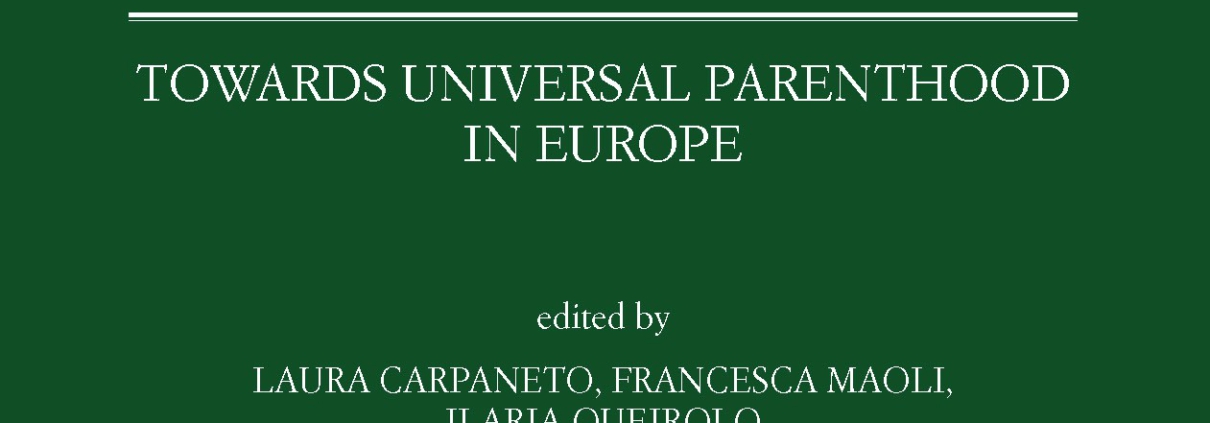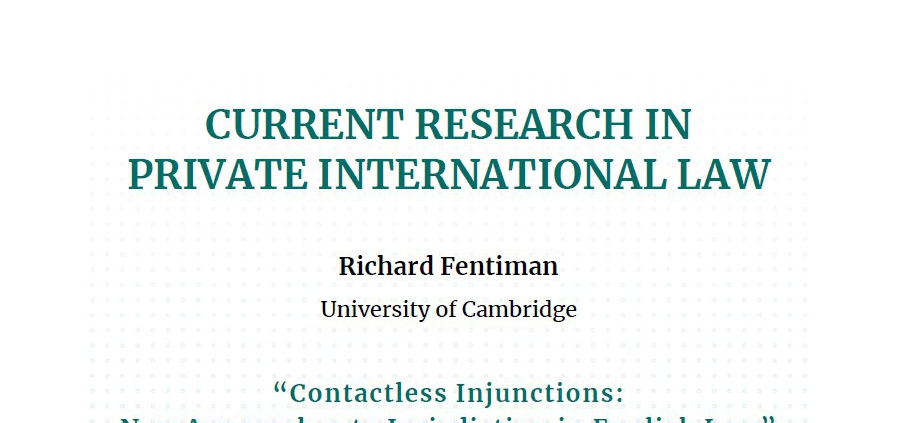Views
Online Symposium on Recent Developments in African PIL (VI) – Proof of Foreign Law and the Fragility of Foreign Marriages in Ghanaian Courts

As part of the second online symposium on recent developments in African private international law, we are pleased to present the sixth contribution, kindly prepared by Theophilus Edwin Coleman (University at Buffalo School of Law, New York (USA) & Senior Research Associate, RCPILEC, University of Johannesburg, South Africa).
From Daddy to Zaddy or Both? Proof of Foreign Law and the Fragility of Foreign Marriages in Ghanaian Courts – Reflections on Akosua Serwaah Fosuh v. Abusua-Panin Kofi Owusu & 2 Others, Suit No. GJ12/20/2026
Online Symposium on Recent Developments in African PIL (V) – Cross-border employment, competition and delictual liability merge in the South African High Court: Placement International Group Limited v Pretorius and Others

As part of the second online symposium on recent developments in African private international law, we are pleased to present the fifth contribution, kindly prepared by Elisa Rinaldi (University of Pretoria, South Africa) on Cross-border employment, competition and delictual liability merge in the South African High Court: Placement International Group Limited v Pretorius and Others.
Online Symposium on Recent Developments in African PIL (IV) – Party Autonomy, Genuine Connection, Convenience, Costs, Privity, and Public Policy: The Kenyan High Court on Exclusive Jurisdiction Clauses

As part of the second online symposium on recent developments in African private international law, we are pleased to present the fourth contribution, kindly prepared by Anam Abdul-Majid (Advocate and Head of Corporate and Commercial Department, KSM Advocates, Nairobi, Kenya) and Kitonga Mulandi (Lawyer, KSM Advocates, Nairobi, Kenya), on Party Autonomy, Genuine Connection, Convenience, Costs, Privity, and Public Policy: The Kenyan High Court on Exclusive Jurisdiction Clauses
News
Publication and Webinar: ELI Report on the EU Parenthood Proposal
Yesterday, the Project Report of the ELI Project “Enhancing Child Protection: Private International Law on Filiation and the European Commission’s Proposal COM/2022/695 final”
It contains constructive amendments to the original Commission’s Parenthood Proposal and intends to bring it more in line with the acquis and general considerations of EU PIL. Furthermore, it puts the best interest of the child in the focus of the analysis.
Recent Publication: Towards Universal Parenthood in Europe
The recently published book Towards Universal Parenthood in Europe (Editoriale Scientifica, 2025), edited by Laura Carpaneto, Francesca Maoli, and Ilaria Queirolo, offers a timely and rigorous contribution to European private international law and family law scholarship.
This volume follows the convention reported at this blog here and likewise presents the results of the UniPAR – Towards Universal Parenthood in Europe project, an EU-co-funded research initiative that addresses some of the most complex legal challenges in cross-border parenthood. Bringing together expert authors from different universities across European Union, the book combines theoretical frameworks with practical insights into how parenthood is recognised and regulated across different Member States. Covering six EU jurisdictions (Spain, Belgium, Italy, Bulgaria, Croatia and Poland) the book provides comprehensive national reports and comparative analyses on key issues of jurisdiction, applicable law, adoption, recognition of decisions and birth certificates and judicial cooperation in parenthood matters. The contents are available here.
This scholarly work advances the debate on the need for coherence in legal frameworks governing parentage and family relationships in European Union, especially in contexts involving cross-border mobility, assisted reproductive technologies and the recognition of family statuses across Member States. The final conclusions and recommendations serve both academic and policy audiences, offering structured reflections on legislative gaps and potential paths towards harmonised rules in EU private international law.This is an essential resource that deepens understanding of the legal implications of cross-border parenthood and strengthens the foundation for future legislative reform in European Union.
Richard Fentiman’s Lecture on Contactless Injunctions in English Law
Richard Fentiman will be speaking on “Contactless Injunctions: New Approaches to Jurisdiction in English Law” at the forthcomming virtual workshop in the Max Planck Institute for Comparative and International Private Law series “Current Research in Private International Law” to be held on on Tuesday, 3 March 2026, at 11:00 (CET).
Richard Fentiman is Professor Emeritus of Private International Law at the University of Cambridge. His research is especially concerned with the law and practice of international commercial litigation and in particular with issues concerning jurisdiction and interim remedies. He will be speaking about the practice of the English courts which regularly grant extraterritorial injunctions to freeze foreign assets or prevent foreign proceedings. In a departure from past practice they will now do so even in the absence of any material link with England. This reveals much about English law’s distinctive approach to injunctions and begs deeper questions about the appropriate grounds for exercising jurisdiction in private international law.
The virtual lecture will be held as a video conference via Zoom. Prior registions is necesarry by Monday, 2 March 2026, using this link.




